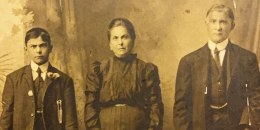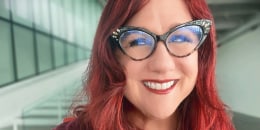“It would be my gift to you,” my first viola teacher said to my mother when she offered to teach me weekly lessons for free. I don’t know what prompted Mrs. Milliken’s suggestion. The camaraderie among the teachers at the public elementary school where Mrs. Milliken taught orchestra and my mother taught fifth grade meant that teachers always looked out for each other and knew each others’ children by name. Mrs. Milliken knew I had been playing viola for two years in my school orchestra. But the generosity of Mrs. Milliken’s gift hinted at something deeper than just politeness. Maybe it was the wig on my mother’s head, freshly bald from chemotherapy, that made her want to reach out. Maybe it was the way I dug through the recycling bins in the orchestra room at my junior high after school, hungry for extra music to practice in the days before sheet music could be downloaded online. What neither Mrs. Milliken or I could know at the time was that her gift would forever alter the course of my life.
My first lesson took place after school in a storage room at the elementary school where Mrs. Milliken taught. I was so excited that I rushed past my mother’s classroom without even dropping off my backpack as soon as I arrived at the school. At 13 years old, I was taller than Mrs. Milliken, but her presence seemed to fill the room. Her short black hair framed a full face of makeup. She favored suit jackets with shoulder pads and always dressed like she’d just stepped gracefully out of a vintage fashion magazine. Full of energy, she seemed capable of anything except sitting still. My eyes widened when she placed a thick stack of sheet music on the music stand in front of me.
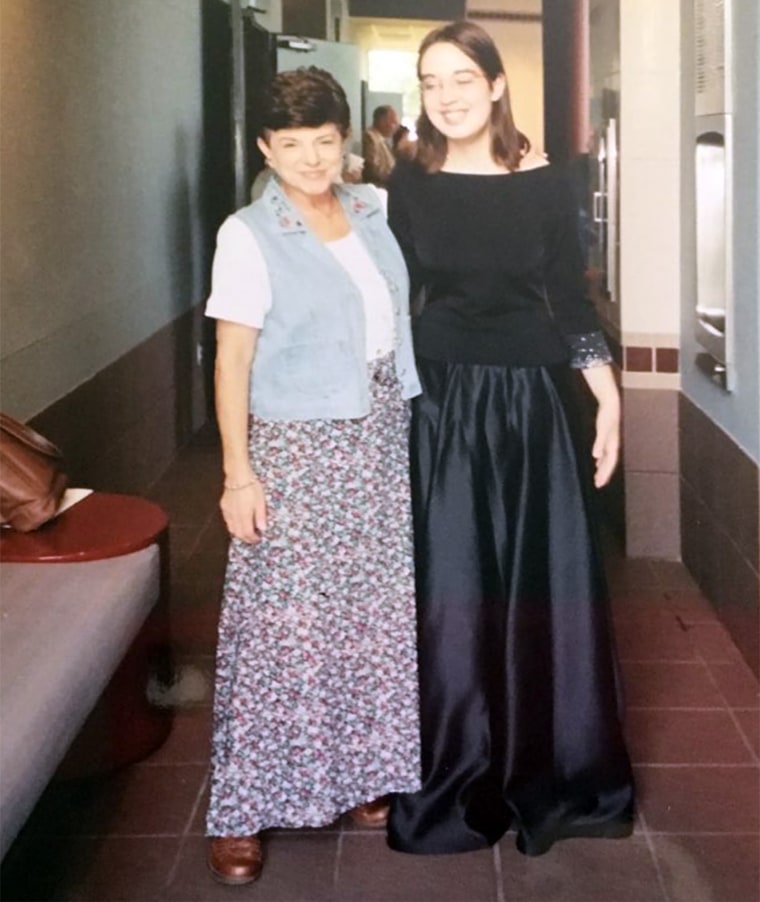
“I’m sure a lot of this is below your level,” Mrs. Milliken said, gesturing with her hands as she spoke.
I stared at the inscrutable mess of black lines and dots on the top page of music. It was by far the most difficult piece I’d seen since I’d started playing the viola two years earlier. Sensing my nervousness, Mrs. Milliken smiled gently. Then she began to explain, note by note, until the squiggles on the page finally made sense.
Mrs. Milliken and I met once a week in the storage room for over two years. Our half-hour lessons stretched into hour lessons, then hour-and-a-half lessons. She taught with a sharp eye for technique, insisting on a perfect bow hold, good posture and flawless intonation. I practiced every day to meet her high standards, which propelled me to the top of my orchestra class, to the top of my school and eventually to the top of my region. Mrs. Milliken celebrated with joy when I achieved my goals. She came to every Region Orchestra concert I performed in, showering me with flowers and cards when I stepped off stage. She was as generous with her words of encouragement as she was with her time. “I’m proud of you,” she said so many times over the years, until her words began to imprint themselves in my mind.
“I’m proud of you,” she said so many times over the years, until her words began to imprint themselves in my mind.
As I advanced at the viola, Mrs. Milliken sent me to study with a different teacher. In the close-knit classical music community, I saw her often at concerts, where she always took time to give me a hug and tell me how much she enjoyed the performance. I sat on stage before the conductor emerged, looking for her in the audience and nearly always seeing her.
By high school, I squeezed in two hours of viola practice around homework and hours of household chores. During the year in which my mother was sick with cancer, I had begun folding the laundry for our family of six, helping cook dinner and washing dishes after dinner. My mother had long since recovered from cancer, but my share of the household chores increased as I grew older. In the community I was raised in, it would have been as strange to see a teenage boy washing dishes as it would have been to see a girl changing the oil in a car. Evening after evening, I stood at the kitchen up to my elbows in soap suds, thinking of the homework I hadn’t yet begun as my brothers watched TV or played video games. I started to believe that my value as a person was no more than the chores that I performed.
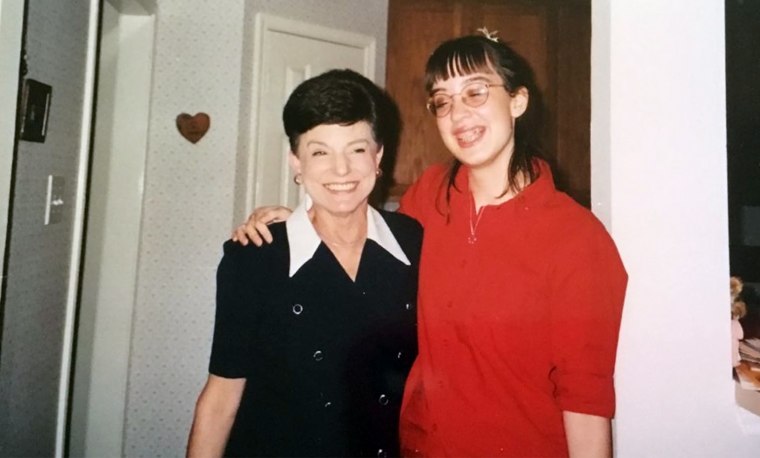
Playing the viola became my voice when I felt I had no voice at home. My music teachers and classmates treated me with respect. They listened when I spoke or played viola. My love of classical music blossomed. I connected to the music of Bach, Beethoven and Brahms in a way I couldn’t connect to my family. This music written hundreds of years ago reached through time to capture the emotions I struggled with in the present day. When people think of classical music, they picture stuffy symphonies, rich people in tuxedos and elitist attitudes. What they should picture is me as a teenager: struggling but determined, in love with the beautiful sound of the viola, and seeking a safe place where I could be myself.
During my senior year of high school, I auditioned for music conservatories and was granted a scholarship to a school in New York — well over a thousand miles from my home in Texas. The instrument I loved had become my ticket out of my hometown. The next fall, I boarded a plane to New York with my viola and a giant suitcase. As I looked out the window at my hometown shrinking beneath me, my favorite Brahms sonata played in my head.
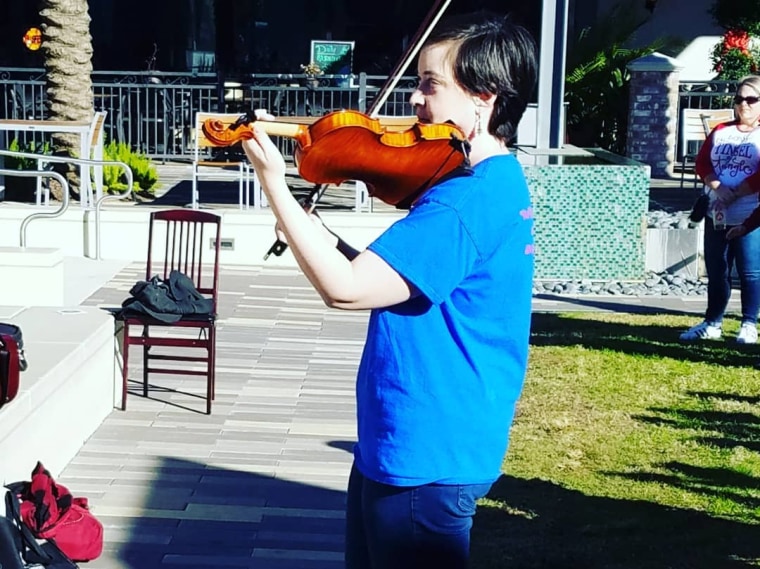
Seven years and two music degrees later, I moved to a different city in my home state. Each week, students carrying musical instruments step into my office. I teach them proper bow holds and posture. Like Mrs. Milliken, I know that kindness and high standards produce good musicians and happy children. I’ve sent six young violists and violinists to college so far. Three of them earned full scholarships because of their auditions. Some of these students have become the first in their family to graduate from college. A few of them have already returned to our local music community as orchestra teachers to help the next generation of music students. One of my greatest joys has been growing from the child who needed a hand into the adult who can offer one.
One of my greatest joys has been growing from the child who needed a hand into the adult who can offer one.
In one of my first performances since the pandemic, I played a Haydn quartet with some colleagues. As I walked off the stage, my heart still pounding, I noticed a familiar face in the audience. She wore the same style suit with shoulder pads. Her hair had faded from black to salt and pepper, but her smile remained the same. “I’m so proud of you,” Mrs. Milliken said as she hugged me, and in an instant, I was again that young girl searching for belonging and finding it in music.






